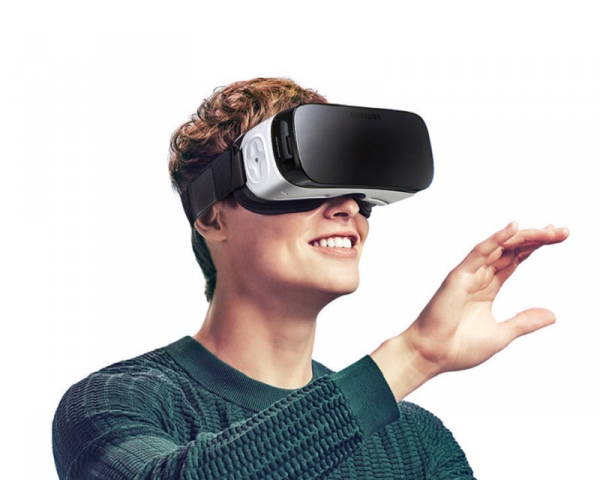
I am Arya Basu and I am the Visual Information Specialist working at ECDS.
Having been an avid PC gamer for years, I realized that what got me into gaming was the responsiveness of the gaming platforms to the actions of players. While pondering my PhD topic, I began to wonder if by moving my entire body as an input to a game, would the experience be improved? Thusly, I focused my research on virtual reality (VR).
Back in 2011, Microsoft’s Kinect devices started introducing the gaming world to virtual reality mechanics. As I began to experiment with the burgeoning technology in the VR field, I realized that mere input is not the only factor in improving performance. I became fascinated with the concept of using my body to make realtime manipulations in a virtual environment.
All game engines read the actions of players and interpret those results to command the flow of the game. In developing my own VR interfaces, I found many roadblocks caused by the multitude of variables in this environment. Anything can go wrong in the environment to negatively affect the experience.
As technology grows in VR, I have tried to maximize the ability of the technology. Some things are not possible yet, such as projecting an image directly on a contact lens. Since I cannot control the advances of hardware, I have been focusing on software, specifically 3D user interfaces.
Human computer interface (HCI) is now the focus of my research, with VR being a key subset of HCI. Why is this research important? According to Wayne Morse, co-director of ECDS, “Currently in the scholarship of teaching and learning (SoTL) there is a focus on technology’s role in personal learning environments to better engage learners. In a digital world, we believe virtual reality will play a significant role in empowering teachers and learners to reach their goals. Arya’s research will help inform how to build virtual learning spaces that offer a wide range of students the same opportunities to create new knowledge through experimentation and application.”
In developing my study, the question in my thesis is this: what level of exposure to video gaming, in general, affects your thought process when it comes to navigating a 3D space? I have been conducting the research study since Spring 2017. The study, called “Exploring Presence in Ubiquitous Virtual Reality,” involves spatial navigation in VR.

The reason for this study is to understand how people engage in certain tasks inside virtual environment. The plan is to quantify one’s level of engagement in doing certain tasks, which include navigating around a virtual reality environment and interacting with virtual objects. In addition, we want to quantify the correlation that exists between one’s kinesthetic senses in the real world and their reflections inside the virtual reality environment.
The unique feature of this study lies in the fact that our virtual reality system is completely untethered and has larger degrees of freedom as opposed to a more traditional virtual reality system.
The research design of our study is an evaluation of user task performance under varying physical locations, time of the day and perceived physical ability of a user. Participants navigate in a simulated virtual environment and perform 3D selection tasks related to the virtual experience. Our primary hypothesis is that participants with a higher physical ability (self-efficacy) score will have a higher success rate in task performance.
Several LITS employees have come by my lab on the third floor of the Woodruff Library to answer survey questions and then take the VR exercise. If you are interested in taking part in this study, please contact me at aryabrata [dot] basu [at] emory [dot] edu.
Leave a Reply